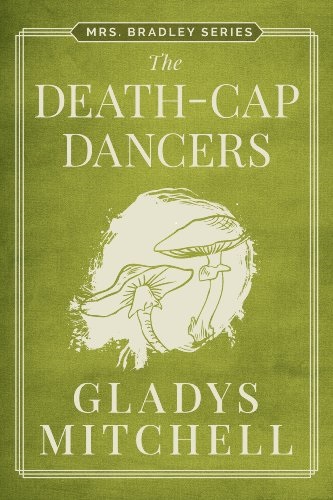Death-Cap Dancers

While en route to visit relatives, Hermione Lestrange falls into company with three agreeable women who are spending their autumn holiday in a forest cabin. Out for a drive, the group discovers a battered bicycle by the side of the road, and closer inspection reveals the unfortunate owner, seemingly dead from head wounds, her body found in a nearby ravine. The police are contacted, but Hermione becomes concerned that suspicion may fall on herself and her new acquaintances, as the scene resembles a hastily covered-up automobile accident. Fearing the worst, she rings up her great-aunt and voices her fears.
The young women are ultimately exonerated, but in a quite unforeseen way: there is a second murder, and an attempted third, and each of the victims or near-victims (including the roadside casualty) is a member of a touring folk-dancing troupe staying at a local hostel. The newest attacks occurred after a performance of hornpipe- and morris-dancing which Hermione and her friends had attended. One dancer was set upon and her body pushed into a broom closet; another troupe member–a man still wearing a lady’s wig to replace the absent cyclist in dances–was knocked unconscious and left for dead in the bushes outside. While Inspector Ribble concentrates his investigation on the movements of the folk-dance group, Dame Beatrice Lestrange Bradley considers a longer list of suspects. The Home Office psychoanalyst also imagines a wider range of scenarios than her more dogmatic police counterpart, some of which put Hermione and her friends in danger. Sending her great-niece (and her group) back to her father’s pig farm in Stanton St. John, Dame Beatrice builds the case study of a very disturbed individual–someone who takes pleasure in pushing the death-cap mushroom into a victim’s wounds.
(Synopsis kindly by Jason Half for information only. If any third party would like to use this material please contact jason@jasonhalf.com).
“The Great Gladys … Miss Mitchell has always stood splendidly apart from her crime-club confreres in total originality.” Philip Larkin in The Observer
“Miss Mitchell is certainly the most perfect and pellucid prose-writer in crime fiction.” Edmund Crispin, The Sunday Times